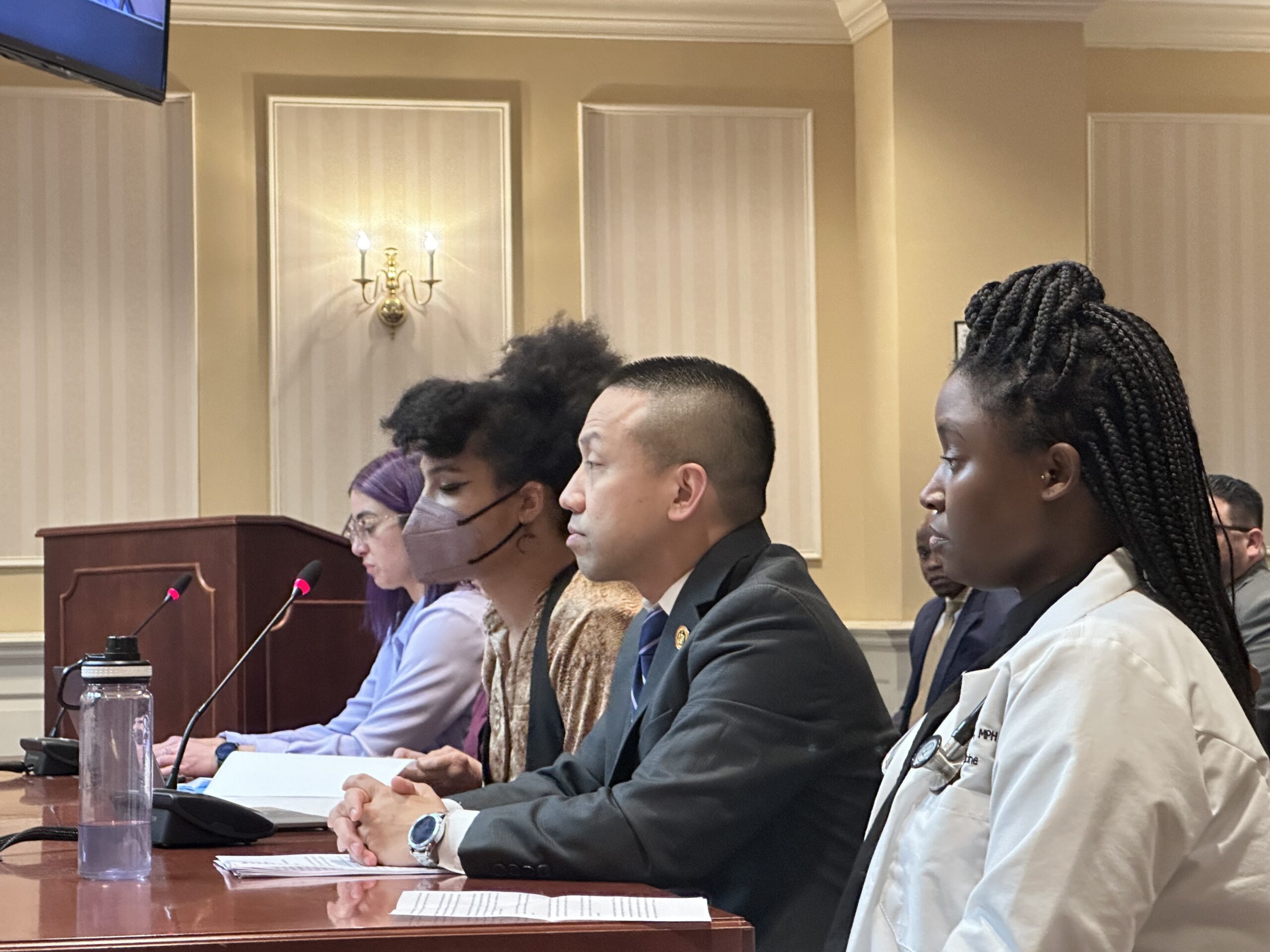
Last year, lawmakers approved the Reproductive Health Protection Act, which shields health care providers in Maryland from liability if they help out-of-state patients obtain an abortion, as long as the services provided are legal under Maryland law.
But a bill in the 2024 legislative session would expand those protections to providers of gender-affirming care as some states work toward prohibiting certain procedures, particularly when for young transgender residents.
“Women’s rights and trans justice are parallel struggles in the fight for bodily autonomy, and that protection needs clarity,” Jamie Grace Alexander, of the Trans Rights Advocacy Coalition, told the Senate Finance Committee Thursday in support of Senate Bill 119.
Sen. Clarence K. Lam (D-Howard and Anne Arundel) is the lead sponsor of the bill. He is a physician and also sits on the Senate Finance Committee.
Lam said that the bill would ensure that “Marylanders aren’t extradited to other states or have their medical records subpoenaed because they received, provided or supported gender-affirming care.”
Gender-affirming care refers to a multitude of procedures and treatments to support and affirm an individual’s gender identity, including hormone therapy, voice training, surgical alterations, and other medical services, under Maryland health care laws.
According to 2022 estimates from the Williams Institute — a think tank of the University of California, Los Angeles School of Law — there are around 8,000 minors and 24,000 adults over the age of 18 in Maryland who identify as transgender.
Data from the Movement Advancement Project, a nonprofit progressive think tank mapping LGBTQ+ policies across the United States, reports that nearly two dozen states have banned physicians from providing minors with gender-affirming care. That includes Maryland’s neighbor, West Virginia.
But 11 states have “shield” laws protecting access to gender-affirming care, and Maryland is one of three states with executive orders to accomplish that goal.
Gov. Wes Moore (D) issued an executive order in June that declared state agencies would not cooperate with out-of-state litigation if someone sought gender-affirming care in Maryland. However, the advocates for transgender Marylanders are urging lawmakers to pass SB 119 to ensure that gender-affirming care is protected in statute.
“The LGBTQ+ community is under siege in our nation, and none more so than those in transgender community,” Lam said. “Just like the bans on abortion and other reproductive health services, many of these bans are structured in ways that could be used to harass gender-affirming patients here in Maryland, or to go after the license of our providers.”
While most testimony was in favor of the measure, the Senate committee heard a handful of testimony opposing it, primarily concerned with minors receiving gender-affirming care.
Jonathan M. Alexandre, legislative counsel for the Maryland Family Institute, said that the conservative Christian advocacy group opposes the bill as it “seeks to provide a Get Out of Jail Free card for those that a performing gender transitions on minors in the state.”
Sen. Justin Ready (R-Carroll and Frederick) asked if the bill has carve-outs for minors seeking gender-affirming care. Lam said that the Reproductive Health Protection Act of 2022 did not make an exception for minors, and SB 119 does not make a distinction either.
“This bill simply extends the same protections for abortion care to gender-affirming care. There’s nothing specific about minors here, so minors can receive the care that they need. This really just pertains to protecting providers, who are providing care, as well as their network,” Lam answered.
“In many states, they have limited transgender operations and surgeries for minors and other types of care for minors… want to make sure that we’re protecting the rights of parents and the consent of parents,” Ready replied. “I don’t have as much of an issue with people who are adults, if they want to come here and seek treatment if they feel that the can’t in another state.”
Finance Chair Pamela Beidle (D-Anne Arundel) jumped in, saying that the bill does not change what treatments are available in the state.
“This bill is not about treatment. It’s not about age…It’s about protecting the information for the patient and for the doctor,” she said.
Crossfiled with Lam’s bill is House Bill 691, sponsored by Del. David Moon (D-Montogomery), which will be heard in the House Health and Government Operations committee on Feb. 21.



